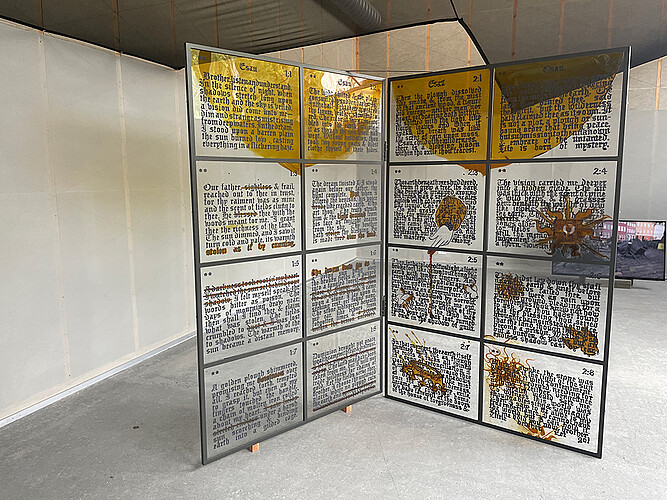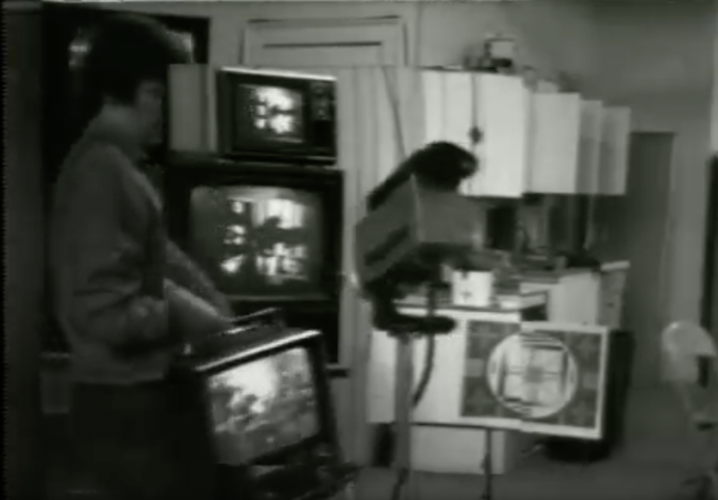AI and the Archive & Seen / Unseen
Part 1 – AI and the Archive
Prof. Nina Fischer, Dr. Annika Haas
Artistic creation relies on archives. So does AI. Building on this idea, this seminar will explore the ever-changing relationship between archives and the arts. How is this relationship being challenged by the growing number of AI applications whose generative qualities are widely informed by the processing of digitised human(-made) archives?
Starting with a broad definition of archives, ranging from cultural and historical institutions to personal data clutter, we will first examine the role that archives and AI-generated/processed content play in our artistic processes. Secondly, we will engage with theories on sampling and authorship; examine the archive as an institution of knowledge, power, exclusion and appropriation, and discuss the built-in discrimination as well as the highly precarious labour and extractivism underlying AI applications and their infrastructures.
How do we look at archives differently once they appear as a resource for AI, or as a result of their creation? What will become of the vast quantity of AI-generated (moving) images and texts? Does the archive still matter in an age of rapidly produced artefacts? Alongside readings and the study of artistic works, the seminar will involve short writing and research exercises that invite participants to consider AI applications and artefacts through an archival lens.
Part 2 – Seen / Unseen: Working with Collections and Archives
Prof. Nina Fischer, Tabea Marschall
Collections and archives shape what we see—and what remains invisible. They are not neutral: they write history, set priorities, and create blind spots. What becomes visible appears relevant, contemporary, and worthy of remembrance—while other things disappear.
In this seminar, we take the moving image seriously as material: as something that not only documents but also inscribes voices, bodies, memories, and time. Video is not only an object of a collection or part of an archive, but carries memories, subjectivity, and time within itself—like a form of autobiography in which history and fiction intertwine.
We discuss questions of accessibility, representation, and canonization: Who is collected, and who is missing? How can archives and collections be activated—as resources, mirrors, or spaces of resonance? And how can one’s own filmic work inscribe itself into these structures, question them, or rewrite them?
Building on theoretical perspectives (including Hélène Cixous, Donna Haraway, Hal Foster, and Ina Blom), participants develop their own filmic responses—in dialogue with existing forms of collections and archives or with their blind spots. The goal is to see archives and collections not merely as places of storage, but as spaces to work with, to inscribe oneself into, and from which new narratives can emerge.
Seminar information
Schedule Part 1 with Annika Haas:
Wednesdays, 2–6 p.m.
- 22 October 2025
- 12 November 2025
- 26 November 2025
- 10 December 2025
Schedule Part 2 Block Sessions with Tabea Marschall:
Friday & Saturday, half-day
- 28–29 November 2025, 11:00–15:00
- 12–13 December 2025, 11:00–15:00
- plus an additional date for the final presentations (tba)
The seminar parts may also be attended separately.
Location:
GRU 129
Schein:
Künstlerisch-gestalterisch / Kunst- und Medienwissenschaft (2 SWS)
Participants:
Max. 20
Language:
German / English
Registration:
Through the Fachklasse or in advance via email to the tutor:
stratos.bichakis@udk-berlin.de
Literature:
ARNS, Inke; BIRKENSTOCK, Eva; BÖNISCH, Dominik; HUNGER, Francis (eds.):Training The Archive
VON BISMARCK, Beatrice (ed.): Archives on Show – Revoicing, Shapeshifting, Displacing – A Curatorial Glossary

